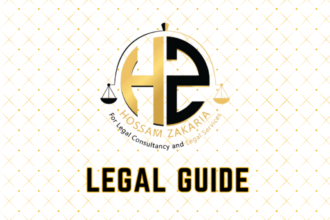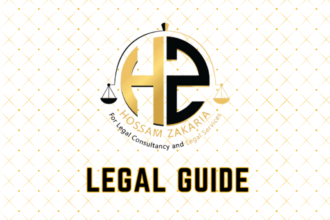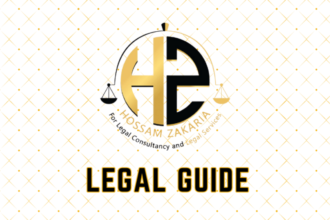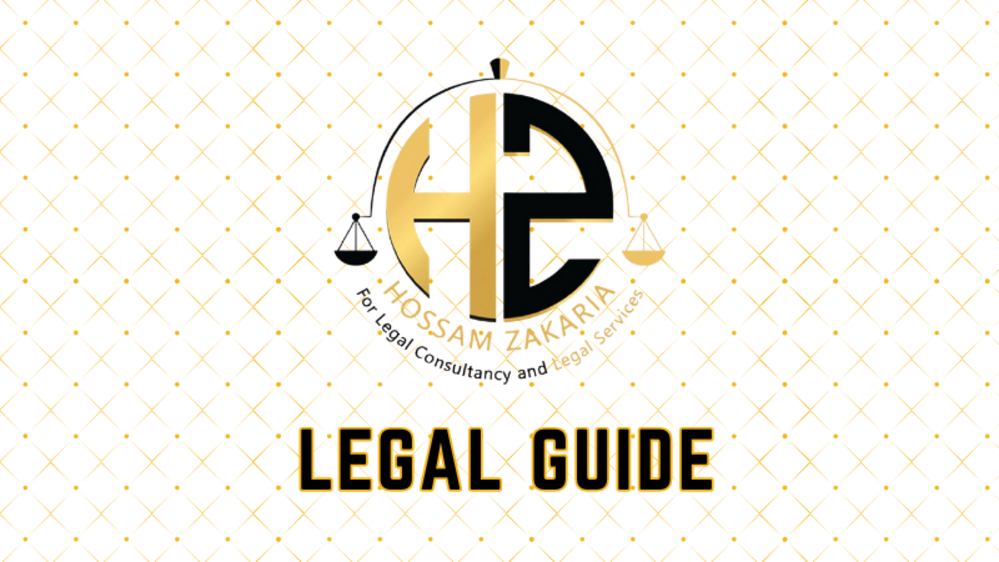Introduction
As the United Arab Emirates (UAE) continues its strategic positioning as a global hub for commerce and investment, the importance of reliable cross-border dispute resolution mechanisms is at an all-time high. International arbitration, long favored for its neutrality, efficiency, and enforceability, commands a pivotal role in the UAE’s business ecosystem, especially following wide-ranging legislative reforms adopted in recent years. With 2025 on the horizon, understanding the intricate legal landscape of international arbitration in the UAE is indispensable for businesses, executives, HR professionals, and legal practitioners seeking to navigate contractual relationships with transnational dimensions.
This article delivers an expert analysis of international arbitration in the UAE, grounded in recent federal legislative updates, including Federal Law No. 6 of 2018 on Arbitration and subsequent executive regulations. Through comparative tables, actionable insights, and in-depth consultancy commentary, we explore how the evolving regulatory environment shapes risk profiles, contractual strategies, compliance requirements, and dispute outcomes for those engaging in the UAE’s dynamic marketplace. Our analysis adheres strictly to official sources—such as the UAE Ministry of Justice, the UAE Government Portal, and the Federal Legal Gazette—to equip readers with authority-backed guidance for 2025 and beyond.
Table of Contents
- Legal Framework of International Arbitration in UAE
- Key Features and Legislative Evolution: Old versus New Law
- Procedural Updates and Impact on Cross-Border Dispute Resolution
- Recognition and Enforcement of Foreign Arbitral Awards
- Case Studies and Hypothetical Scenarios in UAE Arbitration
- Compliance Risks, Mitigation, and Best Practices
- Practical Recommendations for UAE Enterprises and Legal Teams
- Conclusion and Forward-Looking Perspective
Legal Framework of International Arbitration in UAE
Federal Law No. 6 of 2018 on Arbitration
The UAE made a defining leap with Federal Law No. 6 of 2018 on Arbitration (the Arbitration Law), establishing a modern, UNCITRAL Model Law-based framework that comprehensively governs domestic and international arbitration proceedings seated in the UAE. This law, published in the Federal Legal Gazette and enforced across the Emirates, brings the UAE in line with global best practices on neutrality, party autonomy, and efficiency.
The Arbitration Law applies to arbitrations where the seat is the UAE, and extends in part to arbitrations seated abroad provided parties agree to its application. Notably, arbitration provisions in contracts are recognized as enforceable provided they are in writing and evidence clear consent.
Relevant Executive Regulations and Supporting Laws
- Ministerial Resolutions and Guidelines: The UAE Ministry of Justice issues circulars on the conduct of arbitrators and registration of arbitral awards across local courts.
- Cabinet Decision No. 57 of 2018 (on Court Procedures): Streamlines the recognition and enforcement of arbitral awards, reducing bureaucratic bottlenecks and facilitating expedited relief.
- Judicial Cooperation Treaties: The UAE is a signatory to the New York Convention (1958), facilitating the recognition and enforcement of foreign arbitral awards in over 160 jurisdictions.
Key Features and Legislative Evolution: Old versus New Law
Understanding the distinction between the current Arbitration Law and pre-2018 regulations is critical for effective cross-border dispute management.
| Aspect | Pre-2018 UAE Arbitration Regime | Federal Law No. 6 of 2018 (Current) |
|---|---|---|
| Legal Source | UAE Civil Procedure Code (Articles 203–218) | Standalone Arbitration Law modeled on UNCITRAL |
| Party Autonomy | Limited, with significant judicial oversight | Greater autonomy in selecting rules, seat, and language |
| Arbitration Agreement Validity | Strict form requirements; doubts on emails/e-signatures | Recognizes electronic communication and wider forms of evidence |
| Appointment of Arbitrators | Heavily court-regulated; risk of delays | Flexibility in procedures and institutional appointments |
| Interim Measures | Court-driven and complex | Tribunal and courts both empowered; simplified regime |
| Enforcement of Awards | Frequent court challenges, uncertainty | Limitation periods, reduced annulment grounds, expedited recognition |
| Opt-out Provisions | Rarely recognized | Parties may opt out of certain non-mandatory rules |
Consultancy Insight:
The shift to the 2018 Arbitration Law reduces systemic risks of unpredictable outcomes, enhances enforceability, and positions the UAE as an arbitration-friendly venue. Legal practitioners must revisit existing contracts to ensure arbitration clauses reflect the more flexible and internationally harmonized provisions now available.
Procedural Updates and Impact on Cross-Border Dispute Resolution
Streamlined Arbitral Proceedings
The new arbitration framework affords parties extensive procedural freedom, empowering them to design dispute processes tailored to commercial realities. Notable updates include:
- The ability to agree on institutional (e.g., DIFC-LCIA, ICC-UAE, DIAC) or ad hoc proceedings.
- Recognition of technology-driven arbitrations—such as remote hearings, electronic evidence, and digital communications.
- Enhanced rules for joinder of parties, consolidation of proceedings, and appointment of emergency arbitrators.
Executive Regulation Highlights
Ministerial Circulars set forth guidance on arbitrator registration, conflict of interest disclosures, and security of costs. Cabinet Decision No. 57 of 2018 prescribes the exact process for local court applications relating to interim measures, enforcement, and annulment—helping parties plan strategically when urgent relief is necessary.
Institutional versus Ad Hoc Arbitration
| Criteria | Institutional | Ad Hoc |
|---|---|---|
| Rule Framework | Standard rules (e.g., DIAC, ICC) | Parties devise own rules |
| Administrative Support | Secretariat, logistics, fee schedules | No administrative body |
| Efficiency | Predictable timelines, less risk of deadlock | Potential delays if parties disagree |
| Cost | Generally higher; administration fees | Potentially lower, but management-intensive |
Consultancy Insight:
Parties seeking predictability and speed—in complex, high-value cross-border matters—are often best served by institutional rules. Ad hoc arbitration can offer flexibility but is best reserved for experienced parties or disputes with a high degree of trust.
Recognition and Enforcement of Foreign Arbitral Awards
New York Convention in the UAE
The UAE’s membership in the New York Convention (since 2006) anchors its reliability as a forum for the enforcement of foreign arbitral awards. Federal Law No. 6 of 2018 further removes legacy barriers, enabling the local courts to recognize and execute foreign arbitral awards efficiently, provided public policy and due process are observed.
Enforcement Procedure Under Cabinet Decision No. 57 of 2018
- File an application for recognition and enforcement before the UAE Court of First Instance within the seat of arbitration.
- Attach the original or certified copy of the arbitral award, executed arbitration agreement, and certified Arabic translation (if required).
- The court must render its enforcement order within 60 days unless procedural defects are found.
Grounds for refusal align with Model Law and New York Convention standards (e.g., incapacity, invalidity, violation of public policy, lack of notice or due process).
Comparison Chart: Enforcement Pre- and Post-2018
| Aspect | Before 2018 | After 2018 |
|---|---|---|
| Timeframe | 6–24 months possible | Typical 2–3 months |
| Common Challenges | Jurisdiction, formality, public policy | Narrow, internationally harmonized |
| Procedural Steps | Complex, multi-stage | Simplified, with statutory deadlines |
| Recognized Grounds for Refusal | Broad, judicial discretion | Limited to Model Law & New York Convention |
Practical Note:
Ensuring that arbitration agreements and awards comply with UAE formality requirements (e.g., proper execution, clear language, public policy checks) remains essential. A poorly drafted or ambiguous clause risks fatal enforcement delays—even if the underlying award is just.
Case Studies and Hypothetical Scenarios in UAE Arbitration
Case Study 1: Enforcing a Foreign Award in the UAE
Scenario: A European supplier obtains an ICC award seated in Paris against a Dubai entity for unpaid goods. The Dubai company resists enforcement, alleging lack of notice and foreign public policy issues.
Legal Path & Outcome
- Pursuant to Federal Law No. 6 of 2018 and the New York Convention, the European supplier files for recognition in the Dubai Court of First Instance.
- The court considers the validity of the arbitral agreement, proof of service, and whether the award conflicts with “public order” in the UAE.
- In the absence of a clear violation of national public policy or due process, the Dubai court orders enforcement within 60 days.
Lesson:
Meticulous evidence and procedural compliance drastically increase the likelihood of rapid enforcement in post-2018 UAE.
Case Study 2: Drafting Pitfalls in Cross-Border Contracts
Scenario: An Abu Dhabi technology firm agrees to “arbitration under UAE law” in vendor contracts, without specifying rules, seat, or language.
Risk Analysis & Recommendation
- Lack of procedural clarity triggers potential disputes over arbitrator appointment and applicable rules, creating costly delays if a dispute emerges.
- Best practice: Draft arbitration clauses specifying: institutional rules (e.g., DIAC, ICC), arbitration seat (e.g., Dubai, Abu Dhabi Global Market), language, and number of arbitrators.
Compliance Risks, Mitigation, and Best Practices
Top Risks in Cross-Border Arbitration for UAE Entities
- Unenforceable or ambiguous arbitration agreements
- Lack of awareness on limitation periods for challenging or enforcing awards (30 days from service per Article 54, Arbitration Law)
- Failure to follow UAE public policy rules on arbitrability (e.g., employment, criminal matters generally excluded)
- Non-disclosure of arbitrator conflicts, risking annulment
- Inadequate document retention to evidence consent and notice
Compliance Strategies
- Contract Review: Routinely audit standard forms and legacy agreements to align with the 2018 Arbitration Law’s requirements.
- Arbitrator Due Diligence: Verify neutrality, independence commitments, and institutional accreditation of potential arbitrators.
- Training: HR and legal teams should receive regular training on UAE arbitration law updates—especially for international dispute or procurement teams.
- Checklist Implementation: Integrate a compliance checklist into transactional workflows.
Suggested Visual: Arbitration Compliance Checklist Table
| Checklist Item | Status (Yes/No) |
|---|---|
| Clear reference to institutional rules | |
| Specified seat and language | |
| Signed by all parties (physical or recognized e-signature) | |
| Documented process for serving notice | |
| Pre-assigned procedure for arbitrator appointment | |
| Arbitrability under UAE law confirmed | |
| Compliance with UAE public policy |
Practical Recommendations for UAE Enterprises and Legal Teams
Effective international arbitration strategy requires not only compliance, but also proactive risk management and alignment with business objectives. Consider the following professional recommendations:
1. Future-Proof Dispute Resolution Clauses
Draft clauses that anticipate evolving commerce models, digital evidence issues, and potential multi-party/multi-contract disputes. Reference “the applicable law as amended” to accommodate legislative updates seamlessly.
2. Institutional Engagement
Engage with reputable arbitral institutions—such as the Dubai International Arbitration Centre (DIAC), Abu Dhabi Commercial Conciliation and Arbitration Centre (ADCCAC), or foreign institutions with UAE offices—early during contract negotiations. Institutional rules offer built-in procedural robustness and streamlined administration.
3. Multi-Tiered Dispute Resolution Mechanisms
Incorporate escalation procedures (e.g., negotiation, mediation, then arbitration), particularly in long-term or high-value agreements, to preserve relationships and limit costs.
4. Timely Enforcement Planning
For cross-border transactions, assess enforceability in all relevant jurisdictions at the contract drafting stage—not after a dispute materializes. Seek specialist advice if assets are located in non-Convention countries or where parallel litigation is anticipated.
5. Ongoing Legal Training
Stay continuously informed about changes in UAE arbitration rules and international conventions that could impact dispute strategies. Participating in ministerial briefings, DIFC or ADGM legal seminars, or institutional webinars is highly advised.
Conclusion and Forward-Looking Perspective
The legal environment for international arbitration in the UAE is now characterized by a modern, business-friendly, and highly enforceable regime. With Federal Law No. 6 of 2018 and associated executive regulations, the UAE ensures that cross-border disputes are addressed efficiently, transparently, and with global compatibility. For companies operating across borders—or with multinational partners—the ability to resolve disputes seamlessly is a critical competitive advantage.
As regulatory updates unfold in 2025 and beyond, we recommend that organizations:
- Adopt a proactive review of all arbitration clauses and agreements
- Continuously monitor for legislative or institutional updates impacting arbitration processes
- Invest in cross-functional training and external legal consultancy to manage emerging risks
- Maintain detailed, organized documentation to evidence all stages of the arbitration process
Through strategic planning and informed compliance, UAE enterprises can secure their interests, bolster international credibility, and unlock the full potential offered by the UAE’s advanced arbitration landscape.



